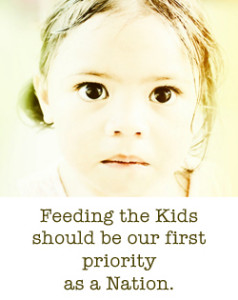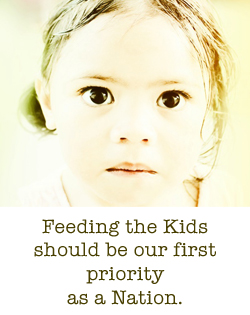 This week in Wellington the rights of the child will be under the microscope. Child Poverty Action Group is taking on the Government in the Court of Appeal seeking a declaration that the impact of the “In Work Tax Credit” unfairly discriminates against 230,000 children.
This week in Wellington the rights of the child will be under the microscope. Child Poverty Action Group is taking on the Government in the Court of Appeal seeking a declaration that the impact of the “In Work Tax Credit” unfairly discriminates against 230,000 children.
For me, the case is critical because it could lead to a direct improvement in access to State support for 230,000 poor children. Beyond child poverty, though, I see this as also representing civil society holding Government to account. And, you know what, I reckon we could do with a bit more accountability holding!
Let’s start with the case.
The Working for Families package includes the “In Work Tax Credit”. The Government says that this provides an incentive for people to get into work with a credit of at least $60 a week (once you meet the complicated criteria).
However, Child Poverty Action Group says that this unfairly discriminates against children living in families not entitled to that credit.
According to Child Poverty Action Group, that loss of at least $60 a week means that children in those families “do not enjoy the same tax-funded support to eat well, keep healthy, warm and dry, and to participate in school activities and sport as others”. This has a particular and disproportionate impact on Māori and Pasifika families.
Rather than reducing child poverty, they say, this actually compounds child poverty by inadvertently targeting the poorest of the poor.
Inherently, that seems unfair. Why should these children be penalised because of their parents’ inability to meet the employment criteria? This isn’t the fault of the child. Yet, there also seems to be a good argument that people should be incentivised to work. Right? So, where is the balance?
Such a balancing exercise is at the heart of discrimination in human rights law. Here, there clearly is a discriminatory impact: one group of kids undeniably has better support from the State than another group of kids.
The question, then, for the Court to determine is whether this adverse impact is outweighed by a rational and legitimate policy objective. In New Zealand, that comes under section 5 of the New Zealand Bill of Rights Act and whether this is a “justified limitation” on the right not to be discriminated against.
For me, this case comes together when you take a child rights centred approach.
The Convention on the Rights of the Child (CRC) is a rare example at international law of almost universal ratification by States. New Zealand ratified the CRC in 1993, while there are only two countries who have signed but not ratified the CRC – Somalia is one, while the other is one you might not have heard about, but it lies between Canada and Mexico…
Anyway, Article 3 of the CRC provides:
“In all actions concerning children, whether undertaken by public or private social welfare institutions, courts of law, administrative authorities or legislative bodies, the best interests of the child shall be a primary consideration.” (my emphasis)
This is known as the “best interests of the child approach”, and is important in the CRC because it is mandatory. It shall be a primary consideration. There is nothing permissive about it. You have to do what is in the best interests of the child. This principle is considered binding at customary international law and States cannot opt out of this requirement (ie, it is non-derogable).
Taking a child centred approach, then, it is hard to see how punishing a child for the (in)actions of her parents is right. How is it in that particular child’s best interests that she not have the same level of State support as other children receive?
And, remember, this concerns the type of rights contained in the International Covenant on Economic, Social, and Cultural Rights which we have also supposedly signed up to. Doesn’t this policy impact on the ability of these children to fully enjoy their rights to access health and education?
For me, the child rights centred/best interests of the child approach leads you to the conclusion that this denial of at least $60 a week cannot be justified. In simple terms, why punish these children?
But, I am not sure this approach will win out in the Court. I think this will all be about “work”, and not at all about the children, with the economy being our true State religion.
Child Poverty Action Group will also argue that the In Work Tax Credit conveniently ignores the reality of precarious work faced by most – if not all – poor families. With casual labour along with zero job or economic security, the obstacles to obtaining work meeting the criteria for the credit are immense. (book plug: if you haven’t already, read Guy Standing’s excellent The Precariat on the challenges facing modern workers).
I hope I am wrong. In another recent case, Atkinson (concerning disability carers), the Court of Appeal did say that there was discrimination based on family status. Of course, the Government responded exceptionally well to that decision as laid out by Andrew Geddis over at Pundit – I mean, they just completely ran roughshod over our constitutional conventions.
Which brings me back to my poorly phrased “accountability holding”. I think we need more of it. I find it interesting that we have seen the response to the disability carers case and this one on child poverty around the same time as the Constitution Conversation. I personally do not feel that now is the right time for a supreme law type constitutional document, and would prefer to see something organic grow out of a participatory bottom – up type process (how that would look, I am not sure…), but I do think we need to look at our accountability mechanisms for the exercise of State power.
I mean, imagine if you could challenge, for example, restrictions on the right to protest or the unfettered ability of the State to spy on you. But, hey, those things will never happen in New Zealand…
So, if you are in Wellington, go along to the Court of Appeal on 28 and 29 May. Watch “accountability holding” in action. I hope you find it contagious.






Well done, all of you. All power to you, keep up the wonderful work.
Thanks for raising awareness on this issue. Interesting to note that the TV3 political editor while reporting on the Government’s expected announcement tomorrow about funding for food in decile one schools, in the context of initiatives to tackle child poverty, failed to make the leap to this case before the Court of Appeal. Investigative reporting much? Thank goodness we have The Daily Blog to fill in the gaps!
[…] a previous post I highlighted an important challenge in the Court of Appeal: Child Poverty Action Group v The […]
Comments are closed.